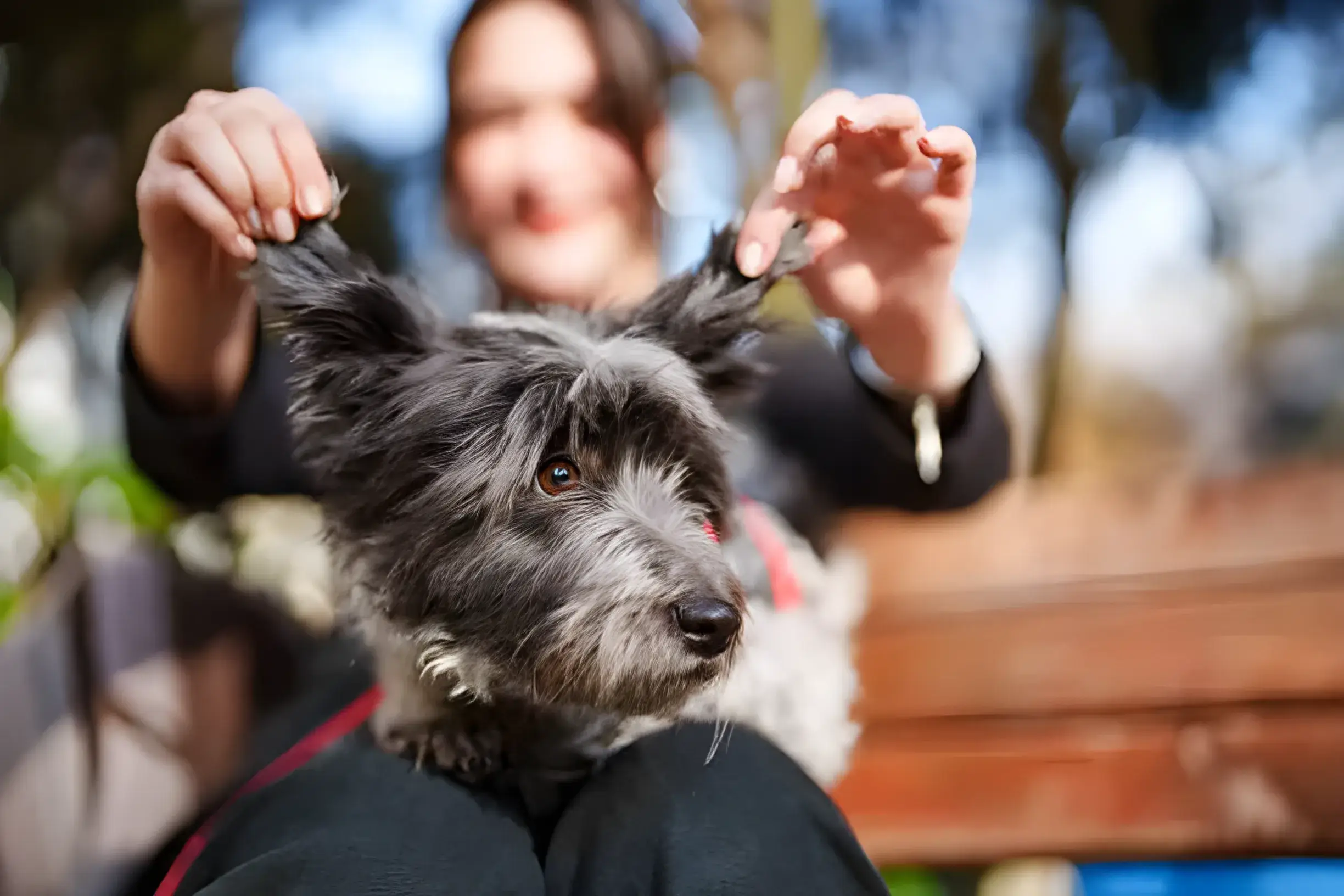While no dog is completely allergen-free, certain breeds produce fewer allergens and tend to trigger milder reactions in those with allergies. It’s about finding dogs that shed less and produce less dander, the primary culprits for most allergy sufferers. Let’s explore some popular options and how to choose the best fit for your lifestyle.
Top 5 Hypoallergenic Dog Breed Profiles: Finding the Fit for Your Lifestyle
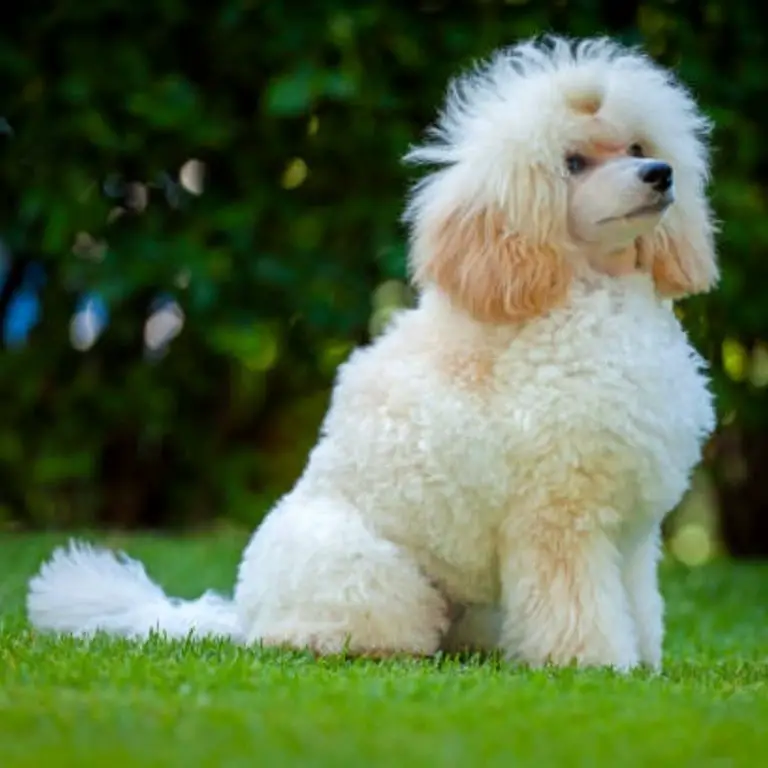
Poodle (Standard, Miniature, Toy): These smart and versatile dogs come in three sizes. Their curly coats need professional grooming but shed minimally. Poodles are energetic, playful, and quick to learn.
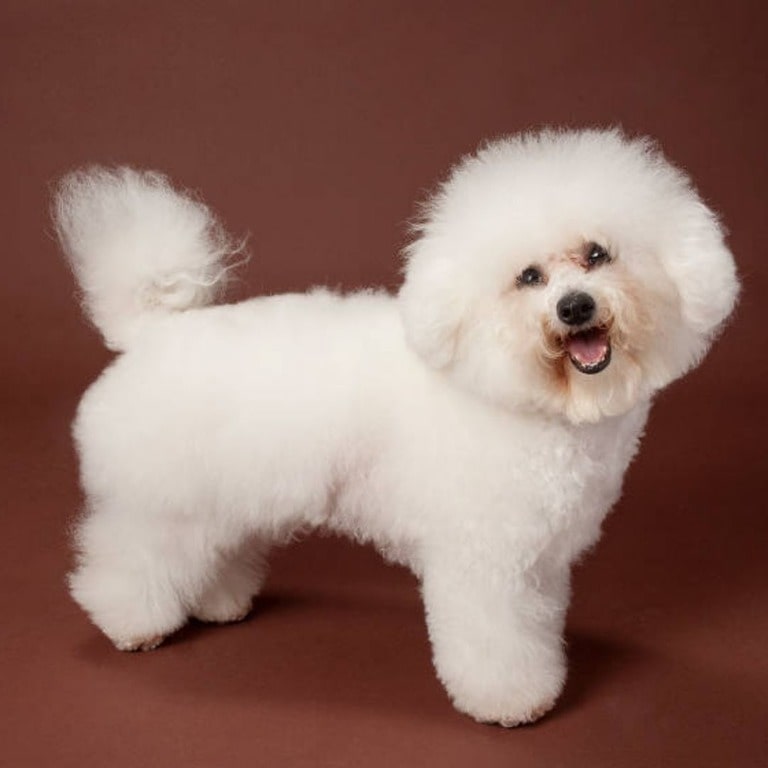
Bichon Frise: These cheerful companions are known for fluffy white coats and minimal shedding. They need regular brushing and grooming but adapt well to apartments and family life.

Yorkshire Terrier: With long, silky hair instead of typical fur, Yorkies shed less than many breeds. They are affectionate and adaptable but can have an independent streak. If you are wondering What is the longest-living hypoallergenic dog breed? then the answer is Yorkshire Terrier because this breed can live up to 13-16 years.
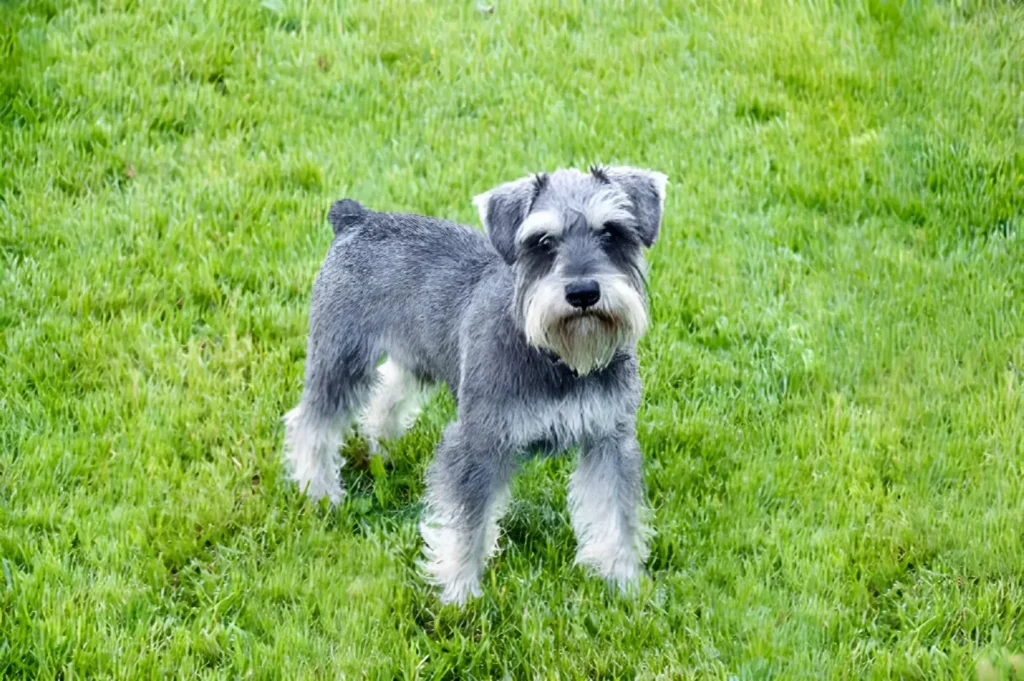
Schnauzers (Miniature, Standard, Giant): These alert dogs have a wiry coat that requires regular grooming. Schnauzers are smart, loyal, and come in sizes for various lifestyles.
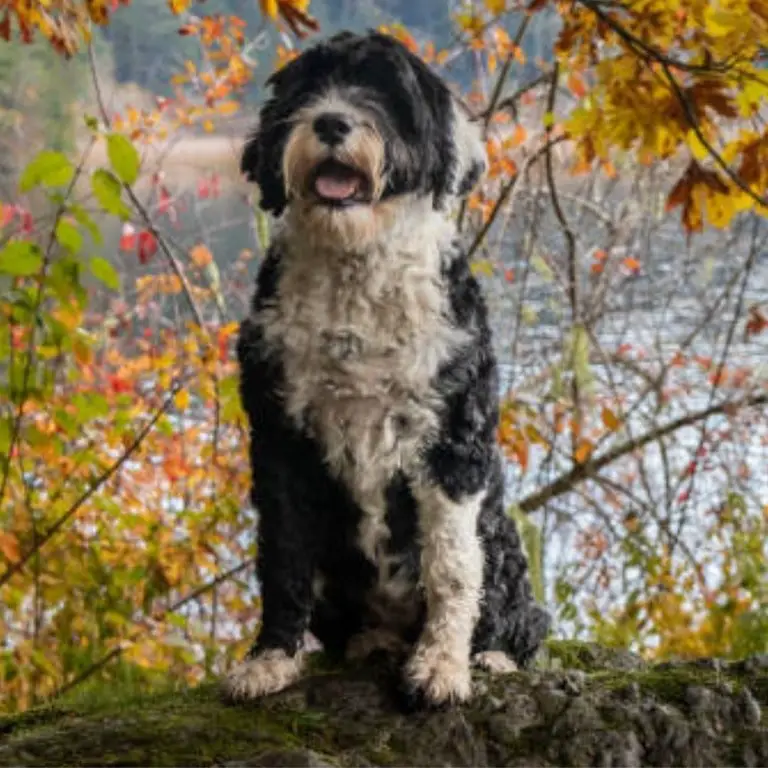
Portuguese Water Dog: Bred for assisting fishermen, these dogs boast a curly, low-shedding coat. They are athletic, intelligent, and excel with active owners.
Beyond the Usual Suspects: Exploring Lesser-Known Gems
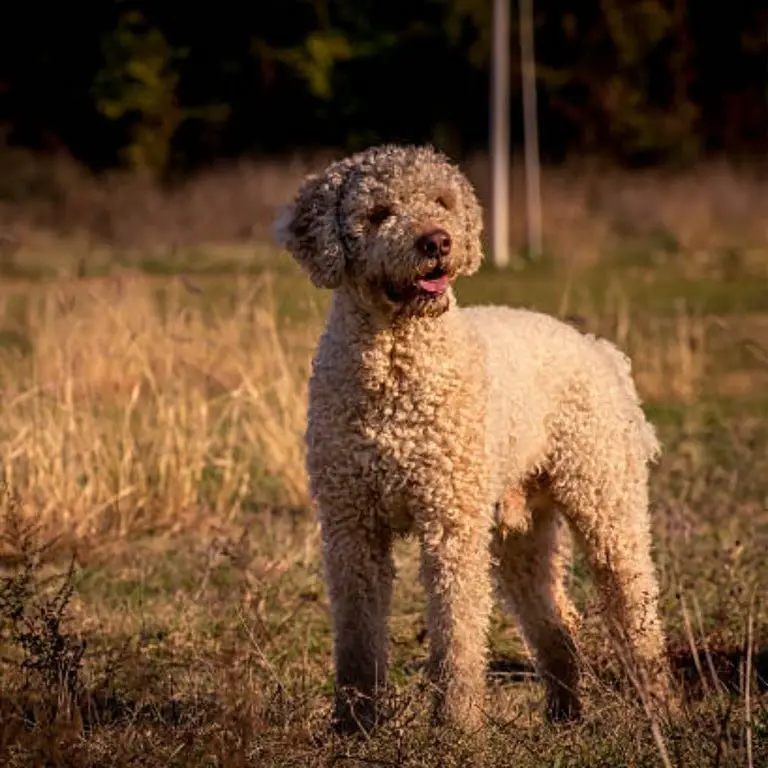
Lagotto Romagnolo: This curly-haired Italian breed is known for its truffle-hunting skills and low-shedding coat. They’re intelligent and playful companions.
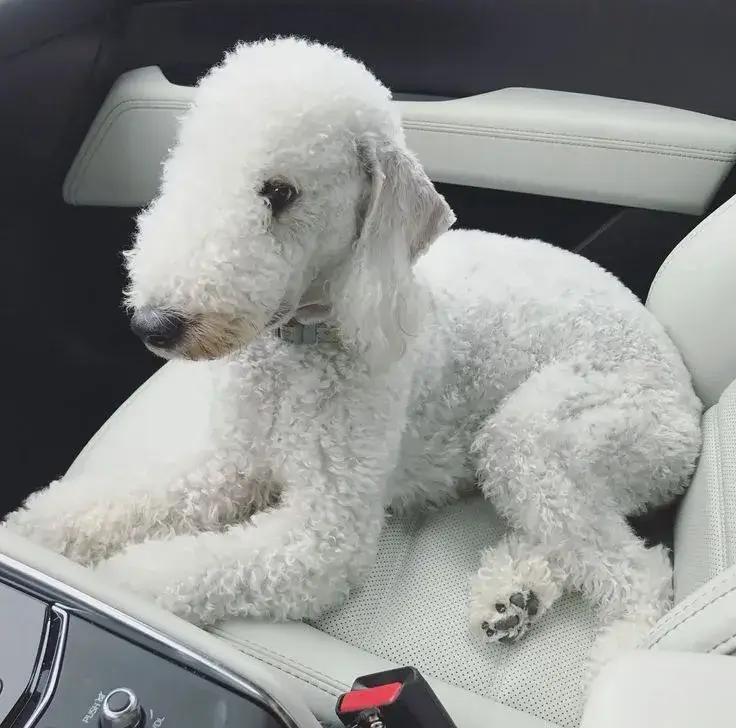
Bedlington Terrier: With a distinctive “wooly” coat, Bedlington Terriers are relatively low-shedding and require minimal grooming.
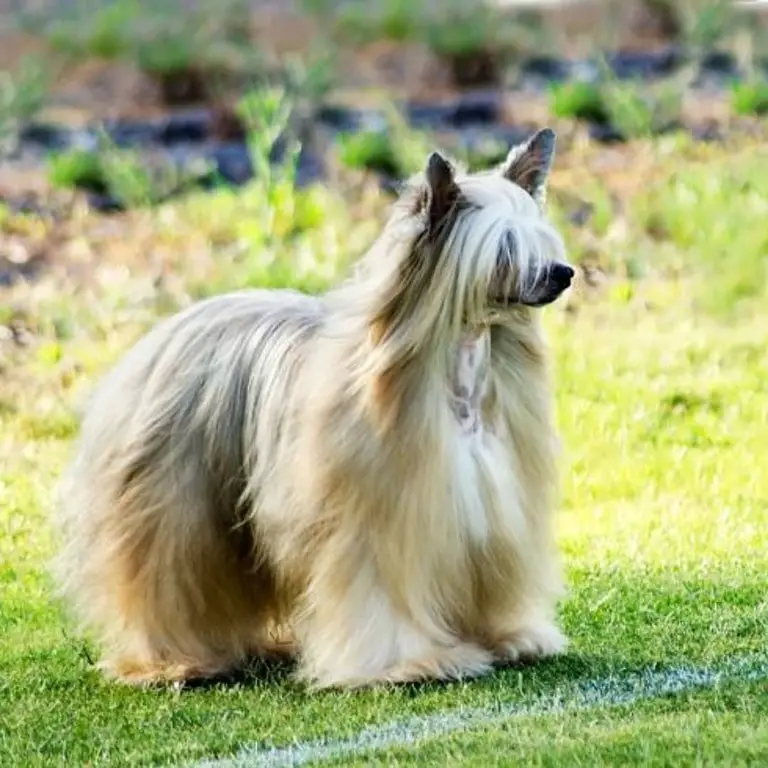
Chinese Crested: These come in hairless and “Powderpuff” varieties, both considered hypoallergenic. They’re affectionate companions ideal for smaller living spaces.
Beyond the Breed: Factors to Consider
Activity Level: Matching your energy level with your dog’s needs is crucial. Are you active and outdoorsy, or looking for a calmer companion?
Living Space: Do you have a large yard for a big dog, or is an apartment-friendly breed a better fit?
Grooming Commitment: Some breeds require professional grooming, while others can be largely maintained at home. Be honest about the time and resources you can dedicate.
Training Needs: Certain breeds are highly trainable while others are more independent. Consider your experience level when choosing a furry companion.
Important Reminders
Meet the Breed: Spend time with individual dogs of the breed you’re interested in, as reactions can vary.
Responsible Breeders: Choose reputable breeders who prioritize health and temperament for reduced allergy risks.
Testing: If possible, spend time at a breeder’s home to see how you react to the specific dogs.
Expert Insights from Dr. Jennifer Jones, Veterinarian

Dr. Jones: “While hypoallergenic breeds offer many allergy sufferers a great option, reactions can still vary between individuals and dogs. Always spend time with a specific dog before bringing them home. Remember that minimizing allergies takes more than just breed choice:
- Air quality counts: HEPA air purifiers can significantly reduce indoor allergens.
- Cleanliness is key: Wash pet bedding, vacuum frequently, and consider restricting your dog’s access to certain rooms.
- Bathing helps: Regularly washing your dog reduces the amount of dander on their fur.
- Create buffer zones: Designating a ‘dog-free’ area like your bedroom can provide relief.
Real-Life Story: A Match Made in Dog Heaven
Sarah had always dreamed of owning a dog but suffered from allergies. After researching hypoallergenic breeds, she settled on a Bichon Frise. “Oliver,” she says, “has brought so much joy into my life. We go for walks every day, and his playful personality makes me laugh constantly. Regular brushing keeps his shedding under control, and my allergies are manageable with air purifiers and allergy medication.”
Managing Expectations: Honesty and Proactive Care
Living with a dog, even a hypoallergenic breed, often still requires some adjustments for allergy sufferers. Be honest with yourself about your tolerance level and consider regular professional cleaning of your home to minimize dander build-up.
Conclusion
The ideal hypoallergenic dog is the one that fits your needs in terms of personality, lifestyle, and allergy tolerance. Thorough research, careful consideration, and testing with specific dogs pave the way to success!
The photo featured below the post headline is Credit: ZeynepKaya/istockphoto
I hope you find this post helpful and informative. If Yes’ feel free to share it with your friends!
Frequently Asked Question
Are hypoallergenic dogs really hypoallergenic?
No, all dogs produce allergens, but some breeds produce significantly less and are better choices for people with sensitivities.
Do mixed-breed dogs help with allergies?
Sometimes! Mixed breeds that inherit traits from hypoallergenic parents (like Poodle mixes) can be good options, but individual reactions can still vary.
What about hairless breeds?
Hairless breeds like the Chinese Crested reduce shedding but still produce dander. They often require specialized skin care.
What are the best hypoallergenic dogs for families with kids?
Consider breeds known for their playful and gentle temperaments: Bichon Frise, Poodle (any size), Portuguese Water Dog, or some Schnauzers.
Can I adopt a hypoallergenic dog from a shelter?
While less common, some hypoallergenic breeds or mixes do end up in shelters. Research breeds in advance and contact shelters in your area.
How can I test my allergies before getting a hypoallergenic dog?
Consult an allergist for testing. Spending time at a breeder’s home with the specific breed you’re interested in is also helpful.
Are there hypoallergenic dogs that don’t require professional grooming?
Some options include the Yorkshire Terrier, Schnauzer (with home grooming), or breeds with hairless options like the Chinese Crested.
I have severe allergies. Can I still own a dog?
It depends on your specific triggers. Close consultation with an allergist is crucial, and a hairless breed with diligent hygiene routines might be possible.
Besides choosing a hypoallergenic breed, how else can I minimize my allergies?
Regular cleaning, HEPA air purifiers, bathing your dog frequently, and potentially creating a dog-free zone can all make a big difference.
Where can I find reliable information on hypoallergenic dog breeds?
Reputable organizations like the American Kennel Club (https://www.akc.org/), The American College of Allergy, Asthma, and Immunology (https://acaai.org/), or breed-specific clubs are good starting points.
Are there any hypoallergenic dog breeds that are good watchdogs?
Some options include the Miniature Schnauzer, Portuguese Water Dog, and certain terrier breeds known for alertness.
I’m an allergy sufferer and also a first-time dog owner – what should I consider?
Opt for breeds known for their ease of training, like Poodles, Bichons, or Portuguese Water Dogs. Consulting a reputable breeder or trainer is a good idea.

